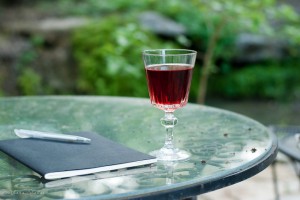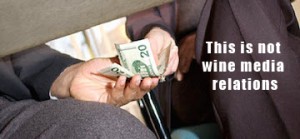Killing the Wine & Arsenic Story — Before It’s Too Late
By Tom Wark
Cross posted from Fermentation – The Daily Wine Blog
“Boy, who knew about the arsenic in wine. I’m a beer drinker.”
“Great, now there’s another way I can die…Just drink wine.”
These are two comments that were directed at me this weekend. Both were unsolicited and both in response to me being asked what I do for a living and responding that I work in the wine business.
IF YOU DON’T THINK THE ARSENIC STORY IS A BIG DEAL, YOU BETTER THINK AGAIN.
Here’s what I can guarantee: sales of wine will decline over at least the next two months, if not further, due to the report that some wines have elevated levels of arsenic in them.
It does not matter that the report is bogus.
It does not matter that those reporting it are extortionists.
It does not matter that you’d have to drink yourself dead to be harmed by the arsenic in wine.
What matters is the perception and the impression.
If you’ve ever wondered why you pay dues to your state winery association or to your regional/appellation association, the reason is for moments like this. If your state or regional trade association is not on the phone with reporters of a national or local perspective, then you better get on the phone with them and absolutely demand they start making calls, setting reporters straight, telling the real story and doing everything they can to discredit the people who are spreading the story that wine is dangerous.
So, as a winery, retailer or member of any other sector of the wine industry, what should you do?
1. Contact your regional and state-based trade association just to remind them that you hope they are addressing the arsenic controversy.
2. Put a statement on your website discrediting the controversy and explaining why there is no danger of arsenic poisoning from drinking your wine.
3. Create a short and sweet fact sheet about the controversy that you can send to customers or trade that ask about the issue.
4. Use social media to direct your followers and friends to the best discrediting of the report that you’ve seen. Here is a good one from the California Wine Institute.
You’ve got to kill these kind of damaging disreputable claims in their crib and you’ve got to do it with hurricane force because if bogus claims like this are left to metastasize it can grow into a cancer on the industry that will be hard to overcome.




